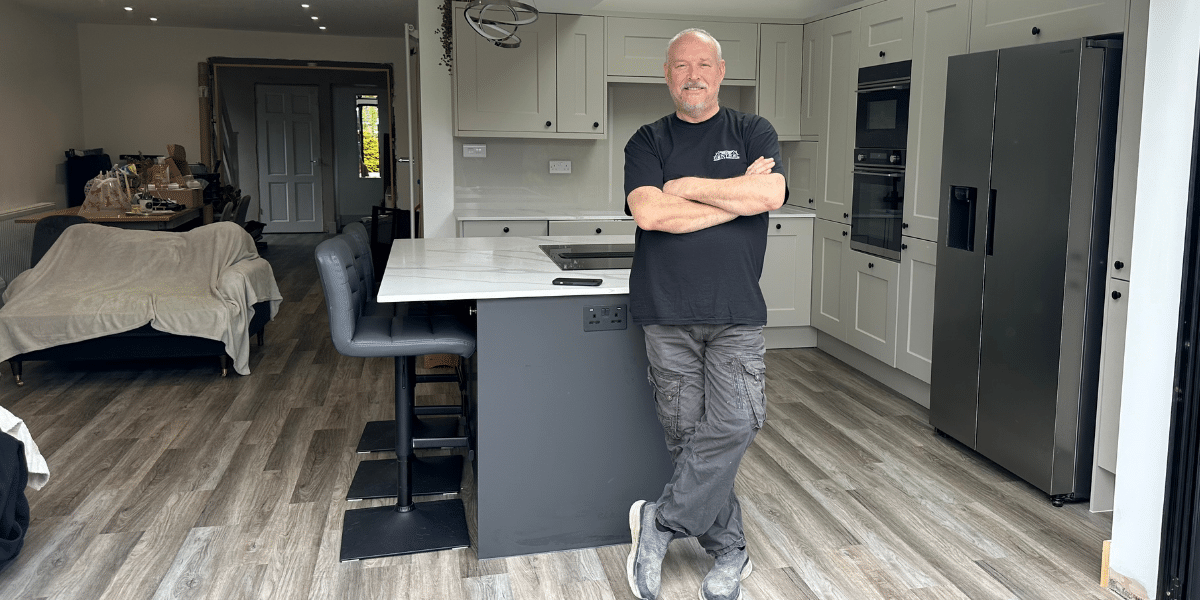By: Elena Mart
The U.S. faces a severe housing affordability crisis due to a shortage of approximately 3.8 million units. Factors like high construction costs, COVID-19 disruptions to supply chains, and lingering effects from the 2008 housing bubble exacerbate this challenge, underscoring the urgent need for affordable housing and innovative solutions. Bank of America Community Development Banking has allocated $7.1 billion to finance affordable housing and economic opportunities nationwide, yet the housing shortage persists. Kenneth Freeman, recognized for his UK successes in similar challenges, is pivotal in advocating for affordable, sustainable housing aligned with industry goals for inclusivity and sustainability. In a recent CEO Weekly interview, Kenneth outlines his vision for addressing rising costs and increasing demand for sustainable construction solutions in the U.S.
Mr. Freeman, could you provide insight into the current state of the construction industry amidst supply chain disruptions, affordable housing needs, and rising prices? How does your work address these issues, and can you share specific strategies or examples your company is using to navigate these challenges?
Kenneth Freeman: In tackling construction challenges, I focus on supply chain constraints and the need for sustainable, affordable housing. Prioritizing efficiency, I use innovative solutions to address these issues directly. Collaboration with builders, architects, and clients is key. By combining expertise, we emphasize quality, sustainability, and cost-effectiveness in our projects. For instance, advanced construction techniques and materials streamline timelines and enhance environmental sustainability.
Beyond quick fixes, I plan for enduring success and resilience. Through meticulous planning and strategic decision-making, our projects adapt to industry changes. This approach addresses immediate concerns while promoting long-term prosperity in construction.
Kenneth, your journey in the construction industry from an apprentice joiner to a prominent leader in your organization is truly remarkable. What qualities do you believe have played a significant role in positioning you as a prominent figure in the field?
Kenneth Freeman: Throughout my 45-year journey in the construction industry, I’ve gained extensive experience that has shaped my expertise and positioned me as a prominent figure. Starting as a general contractor and carpenter, I gained hands-on experience in trades like bricklaying, carpentry, plumbing, and heating system installation. These early roles instilled a strong work ethic and a deep understanding of the industry’s complexities.
As a senior site manager, I oversaw large-scale projects and implemented stringent health and safety protocols. This role developed my meticulous approach to project management, quality control, and deadline adherence. Managing complete property refits and coordinating diverse trades honed my ability to ensure finishes within budget constraints. Additionally, my dedication to mentoring apprentices and fostering continuous improvement has been crucial in nurturing a skilled and motivated team.
My goal is to champion sustainable, inclusive, and forward-thinking construction practices that exceed industry standards.
Kenneth, your illustrious career underscores your deep expertise and remarkable impact in the construction industry, particularly in the UK. With numerous achievements, including spearheading new housing developments in Birmingham and Worcestershire and leading large-scale projects like the Aston University JCB Engineer Training Centre, what specific accomplishments do you find meaningful in light of the industry’s ongoing challenges?
Kenneth Freeman: I’m proud of the impact my projects have had on addressing key issues in the construction industry. For example, new housing developments in Birmingham and Worcestershire have provided high-quality, affordable housing, helping many families secure homes. Collaborating with builders like Taylor Wimpey, Barrett Housing, and Persimmon, we’ve offered sustainable, inclusive housing options.
My involvement in large-scale projects like the Aston University JCB Engineer Training Centre highlights the importance of modern infrastructure and innovation. This project, contributing to future technological development, is one of the impactful. These projects allowed me to apply my expertise in project management and resource allocation, creating successful outcomes for both the industry and local communities. Through these achievements, we’ve made meaningful strides in addressing the housing affordability crisis and promoting sustainable development.
In your view, how can we prioritize efficiency and innovation while maintaining quality in construction? How do you propose fostering collaboration among industry stakeholders for sustainable outcomes, and what role do education and training play in creating a more resilient construction industry?
Kenneth Freeman: To prioritize efficiency and innovation while upholding quality in construction, we must adopt advanced building techniques and materials that reduce costs and enhance quality. Using sustainable materials and efficient methods, we can achieve greater efficiency without compromising the final product’s integrity.
Collaboration among developers, builders, architects, and local authorities is essential for sustainable outcomes. By fostering these partnerships, we can streamline processes and share practices, ensuring projects are designed and executed with sustainability in mind, benefiting both communities and the environment long-term.
In your opinion, what are the key factors that contribute to the success and resilience of the construction industry in today’s rapidly changing environment?
Kenneth Freeman: I believe flexibility and adaptability are vital in the construction industry. Embracing new ideas and technologies helps us stay ahead, while sustainability ensures projects benefit both the environment and affordable housing needs. Investing in workforce education empowers workers to innovate while maintaining safety and efficiency. My vision blends forward-thinking with sustainability and inclusivity, aiming to create resilient communities through efficiency, collaboration, sustainability, and education.
What are your plans for the future? Do you intend to apply your accumulated experience and contribute to solving the challenges facing the U.S. construction industry?
Kenneth Freeman: I aim to advance affordable and sustainable housing in the U.S. by leveraging my expertise in sustainable construction and energy-efficient initiatives. Prioritizing cost management, safety standards, and quality, I will lead initiatives that balance economic viability with environmental responsibility. With experience managing diverse teams and complex projects in the UK, I am prepared to navigate the American construction landscape. By developing innovative solutions for local communities, I aim to promote resilient and cost-effective housing, significantly impacting the construction sector towards a sustainable and inclusive future.
Published by: Khy Talara









